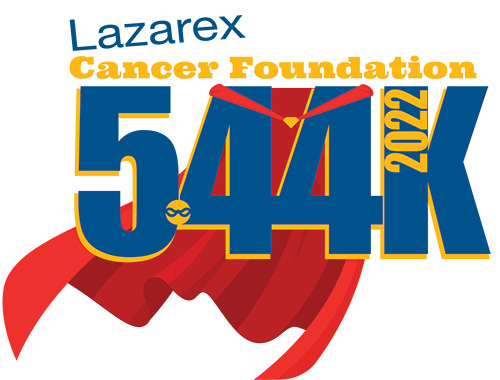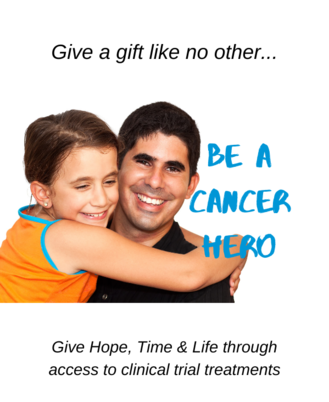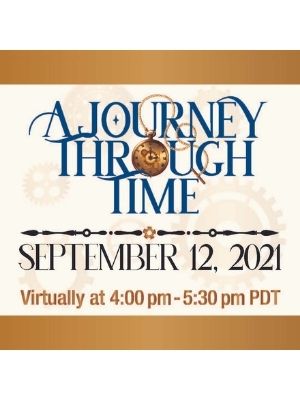As we enter 2023, we continue to uncover more inequities in cancer care and access. In response, we are expanding our program offerings to address them.
By Dana Dornsife
Founder & Chief Mission and Strategy Officer, Lazarex Cancer Foundation
When I founded Lazarex Cancer Foundation in 2006, our primary mission was to identify clinical trial opportunities and help patients with the travel costs of trial participation – removing the primary barriers of knowledge and financial burden that prevent cancer patients from taking advantage of the medical breakthroughs that trials offer. Over the years, we came to learn of the many barriers that penetrate deep into society and have embedded themselves systemically, especially within our underserved communities of color.
As we enter our 17th year, we continue to uncover more inequities in cancer care and access, and we are expanding our program offerings to address them. It has been one year since my title changed from CEO to Chief Mission and Strategy Officer. Stephanie Rivera, a dynamic leader who now serves as our CEO, is guiding our daily efforts, development of our programs and managing our incredible team. The addition of Stephanie to our team also now allows me to do what I do best – identify problems, create solutions and make connections to fix them and expand the ways that Lazarex can help achieve equitable access to cancer services, treatment, and clinical trials.

Here are the three challenges I plan to focus on in 2023 and how we will tackle them.
Powering up Programs & Partnerships
As you can imagine, since we remain the only organization reimbursing cancer patients for travel expenses to and from clinical trials to the extent that we do – our patient numbers are constantly rising. We saw record growth last year – with a 42% increase in the number of patients we’re helping by providing trial navigation and covering the costs of their flights, hotels, parking, mileage, tolls, and other forms of transportation and housing to get to and from their trial treatments.
Providing these travel reimbursements through our CARE Program (Creating Access Reimbursing Expenses) is the heart and soul of Lazarex. We hear every day from our VIPs (Very Important Patients) about the many ways this program changes their lives. Requests for patient support are coming in faster than we can grow our donor network to support them so we will continue to develop meaningful and long-term relationships with new funding partners from the private sector to industry, foundations, and grants, throughout 2023, while actively nurturing our existing donor base. We are piloting our new PATH Program as a transactional revenue stream in an effort to monetize our reimbursement experience and fund our other programmatic efforts.
As the depth of our knowledge grows along with our organization, we realize that equally as important as treating the symptom of inaccessible cancer clinical trials is addressing the problem that creates this environment in the first place – which remains a VERY BIG PROBLEM. Though it has always been the case, COVID once again revealed the extent to which health disparities and health outcomes differ based upon where and how you live. Our communities of color continue to be disproportionately impacted. Our vision is and always has been that every person affected by cancer will have hope, dignity, support, and the most advanced treatments made available to them at all stages of their journey. To realize our vision, we have to start at the beginning of the cancer journey to create a platform of equitable access to the cancer services, treatments and trials needed from prevention to early screening and detection, through treatment, clinical trials and survivorship.
This led to the development and facilitation of our Lazarex Cancer Wellness HUBs which serve as a great model for how community outreach can have the most impact on improving cancer health disparities and outcomes when you meet people where they are. The HUB brings services to underserved communities, to educate and increase awareness with trusted community voices in a culturally appropriate, place-based, and community-led manner.
2023 is a year of expansion for our HUB locations in Philadelphia, Los Angeles, and the San Francisco East Bay. We want to drive change faster and we can do that by sharing what we’ve learned and collaborating with others who want to do the same. Change must come from within the healthcare space, and this can be achieved when we forge powerful stakeholder partnerships and advocate for specific improvements. I am committed this year to building our partner network with community and patient advocacy organizations, and industry and pharma partners willing to do this work with us.


Driving Difficult Conversations
For five years through our Disrupting the System event, we’ve been encouraging people to have provocative conversations to drive positive change. One of our important topics is what we’ve dubbed “the dirty little secret in healthcare” – inequities caused by insurance. The type of insurance you have too often determines where you’re seen and what treatment is offered. Too frequently, that can limit or cut off access to the best treatments and clinical trials altogether. Even more heartbreaking – patients often don’t realize what isn’t made available to them. I am committed to finding ways to change this.
It is long past time for the FDA to publish Guidance Language mandating the reporting of diversity data in trials rather than just recommending it. Clear guidelines need to be established to hold researchers accountable for adequate diversity in their trials. President Nixon declared war on cancer in 1970 and over 50 years later this remains our longest fought war and not enough has changed. We will engage with Congress and the FDA to bring about this change.
The current structure of healthcare and cancer treatment dictates that we also need more states to get involved in this effort. In 2018, we succeeded in changing official guidance at the FDA to say that reimbursing cancer patients in a clinical trial is not coercion, but rather fair practice for creating equal access to cancer trials. Since then, we’ve secured legislation in 6 states that reflects this practice to improve access to cancer clinical trials for patients – especially minority communities – by providing a pathway for remedy to eliminate the financial burdens they face when they’re in a clinical trial. This coming year, I’ll be working to add Florida, New York, Ohio, Montana, and Maryland to the list of states who’ve made this move in their legislature. When we do, this guidance will apply to 62% of the population in the US – which I think certainly supports the importance of this goal and paves the way to sustainability.
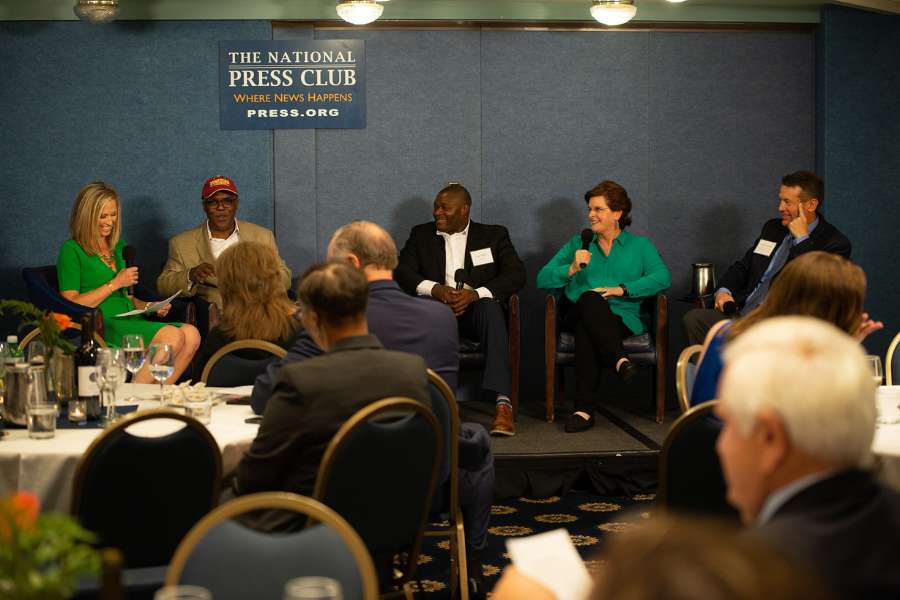
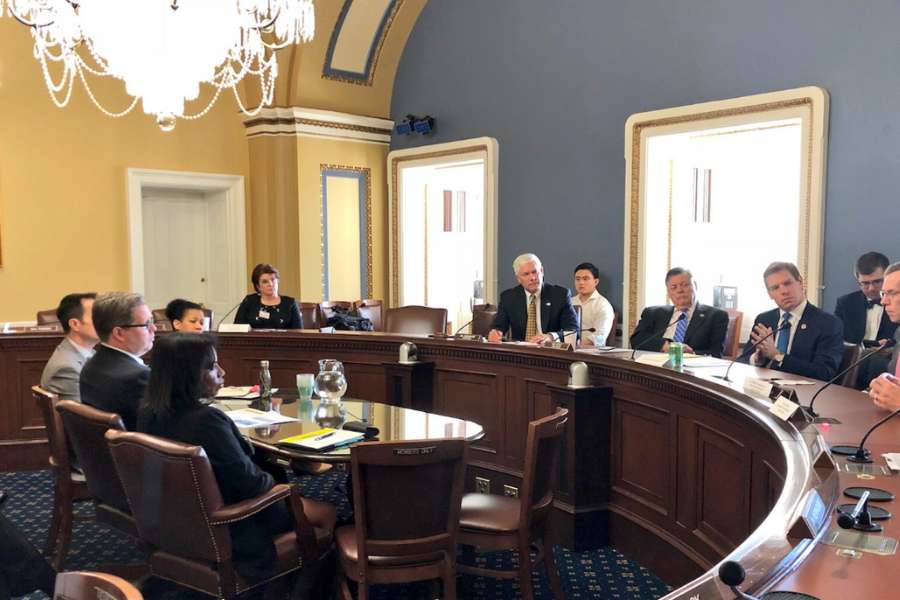
Achieving Equity with Genomic Testing
Tremendous work is being done around new precision therapies and treatments in the cancer space and Next Generation Sequencing (NGS) – or genomic testing – is a must in identifying eligibility to receive these new promising treatments. Knowing your molecular makeup is the key to accessing precision medicine. Genomic testing should be made available to all who need it, but it is expensive and is limited in insurance coverage. So only those who can afford to pay for it can benefit from it – widening the disparity gap. Cost shouldn’t be a barrier, but it is, and we have a lot of work to do to eliminate this inequity.
Through our Cancer Wellness HUBS, I want to continue working to connect patients with companies that provide this testing at minimal cost or for free. We also need to increase patient education and reduce medical mistrust, so people understand the value of genomic testing and why it’s a game changer. Most patients who contact us haven’t heard of genomic testing or are wary of it. I’m dedicated to improving that in 2023 and I will be looking for opportunities to create equitable access to NGS testing.
The beginning of each year is a time when hope abounds. But unfortunately, each and every day, too many cancer patients in the U.S. are told there’s no hope left. The more we work together on these priorities, the more we can ensure expanded resources are available and HOPE is something every cancer patient has access to.
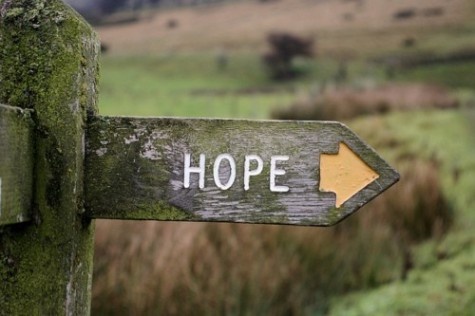
Dana Dornsife is Founder & Chief Mission and Strategy Officer at Lazarex Cancer Foundation. Learn more at Lazarex.org.

